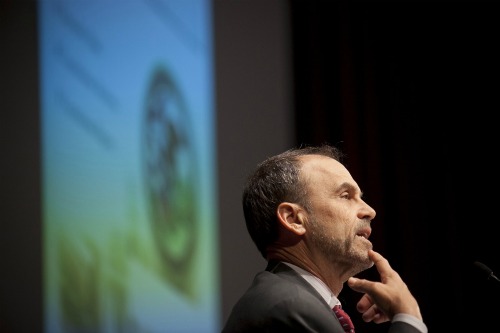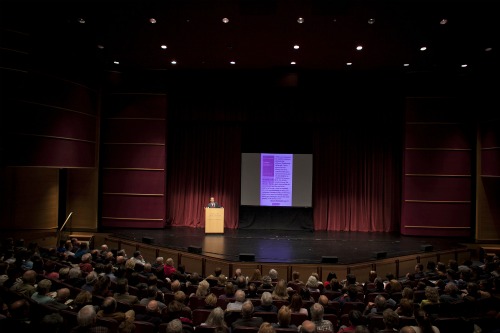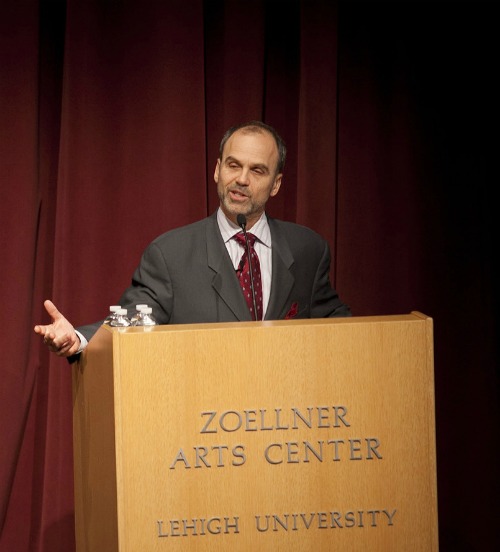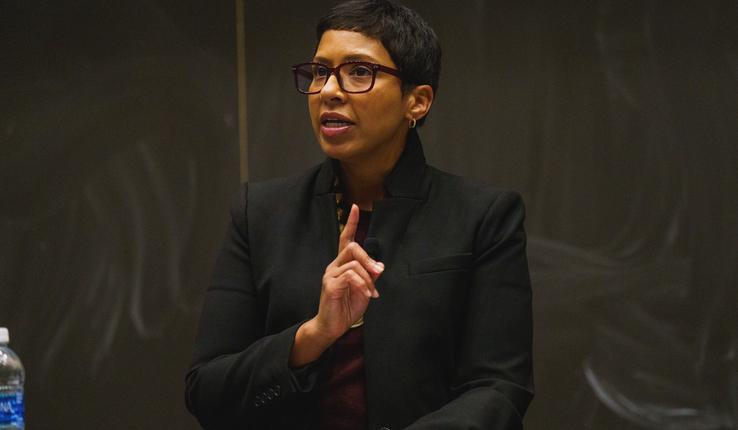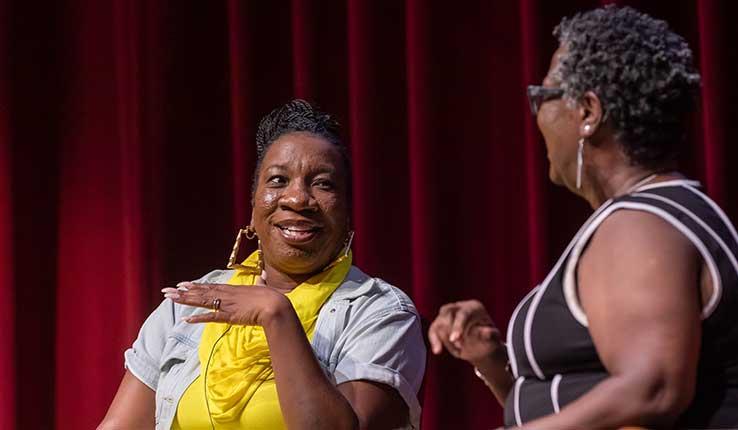Turow: Capital punishment system in U.S. ‘like a roulette wheel’
Scott Turow, an attorney and best-selling author of Presumed Innocent, traced his evolution from death penalty agnostic to passionate opponent of capital punishment in this year’s Tresolini Lecture.
In an hour-long presentation before a crowd of nearly 250 in Zoellner Arts Center’s Baker Hall Thursday night, the former prosecutor said his views changed largely as the result of his appointment to a panel of legal experts convened by then Illinois Gov. George Ryan in 2000 to fully examine the issue.
“It was a wonderful group,” he said. “We all understood the gravity of the work before us.”
Turow said he read thousands of pages of testimony related to 273 death penalty cases in Illinois. What he found is that the current system “is a sort of roulette wheel. As it turns out, there’s a boatload of innocent people sentenced to death in this country.”
As of today, Turow said, 140 people who had been wrongly convicted have been released from death row. Unfortunately, he added, issues such as wealth, gender and race continue to play disproportionate roles in death penalty decisions.
“There is terrible arbitrariness to our system. They say, ‘There ain’t no rich men on death row,’ and they’re right.”
In one case he reviewed involving the murder of a 10-year-old girl, he said, “I found it astonishing that prosecutors hid and doctored evidence and that judges were afraid of a politically motivated community.”
In another, a defendant with no major history of crime accused of shooting a man in a “parking lot stick-up gone bad” was given the death penalty by a judge who had never before issued such a ruling, but was angry with the defendant.
‘The tenderest of arguments’
Turow conceded that arguing against capital punishment is more difficult when the crimes are heinous, such as those committed by mass murderer John Wayne Gacy, who tortured 33 young boys to death before burying many of them in a crawl space under his Chicago home.
“Aside from the horrific crimes, what was especially disturbing is that there were 33 families who never knew what became of their children until those bodies were discovered,” he said. “How could you stand up in defense of him? The thinking is that someone like Gacy so revolts us that it seems appropriate in some measure to put him to death. That is not the issue. That is not the question.”
The question, he said, is whether it is even possible to construct a system that only sentences to death those who are beyond moral redemption and are undeniably guilty, without also convicting innocent people.
“The short answer,” he said, “is no. We will never construct that system.”
Turow meticulously countered traditional arguments in favor of the death penalty, detailing statistical evidence that capital punishment was not an effective deterrent, that a life sentence instead of an execution is not a drain on tax dollars, and that execution is not the only effective way of ensuring that a murderer will never kill again.
Perhaps the most emotional—what Turow called the “tenderest of arguments”—is the claim that the victim deserves to have his or her killer die.
“Most of the victim’s families do want the killer to die,” he said. “Losing someone you love to murder is unlike any other loss. There is no doubt this is a devastating loss for the family. But in the end, it’s an argument that promises too much. There are no longitudinal studies that people get greater closure after an execution.”
In some cases, he said, it might be even more painful for the family members who expected a crushing emotional burden to be lifted, he said.
Turow was originally scheduled to deliver the Tresolini Lecture last semester, but a late October snowstorm caused massive power outages along the East Coast, forcing Lehigh to close and cancel classes for three days.
In introducing him, Brian Pinaire, associate professor of political science and organizer of the annual event, commented on the extraordinary circumstances that preceded Turow’s appearance.
“I’ve never been so happy to look out and see an audience,” said Pinaire, who went on to detail Turow’s career accomplishments.
The author of a total of nine best-selling books, Turow was the latest in a long line of legal luminaries who have delivered the Tresolini Lecture, which was established in 1978 in memory of distinguished Lehigh teacher and scholar, Rocco Tresolini (1920-1967). Previous speakers include former U.S. Supreme Court Justice Antonin Scalia, U.S. Attorney General Janet Reno, former Vietnam War-era governmental strategic analyst Daniel Ellsberg, U.S. Congressman Jesse Jackson Jr., attorney David Boies, and Innocence Project founder Barry Scheck.
Photos by Douglas Benedict
Posted on:


